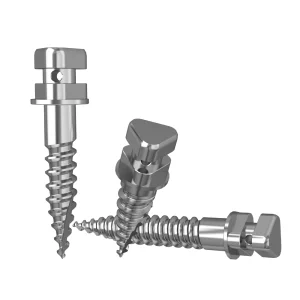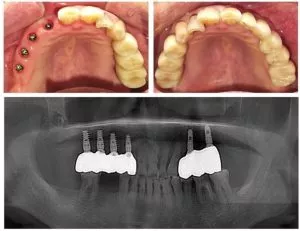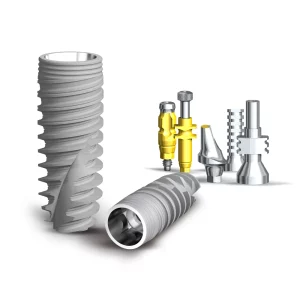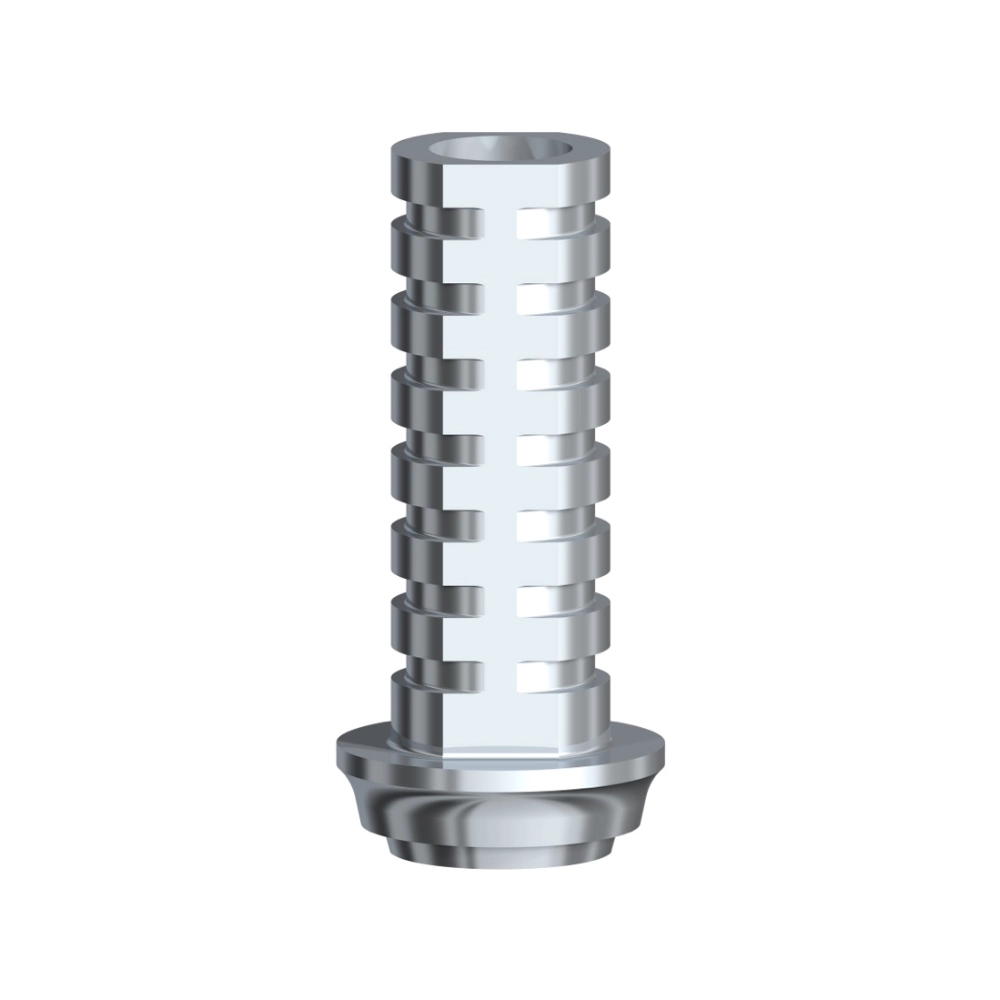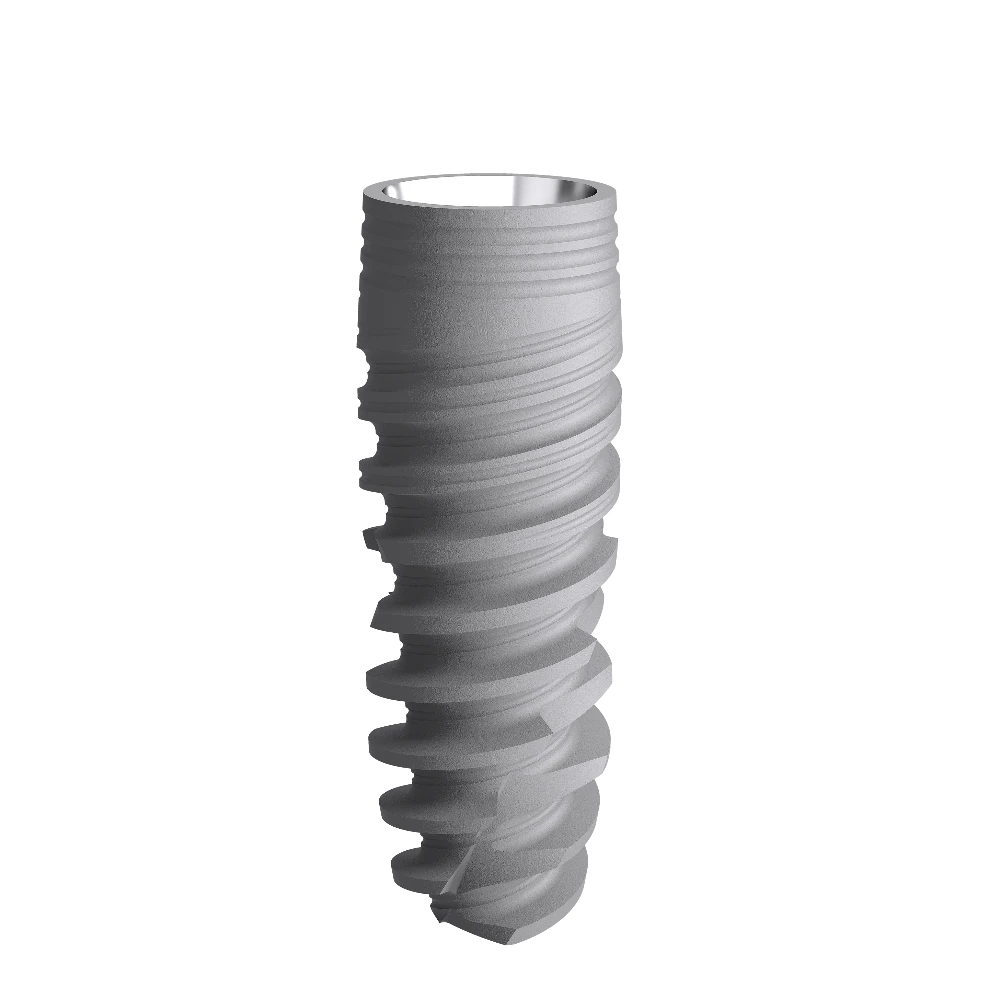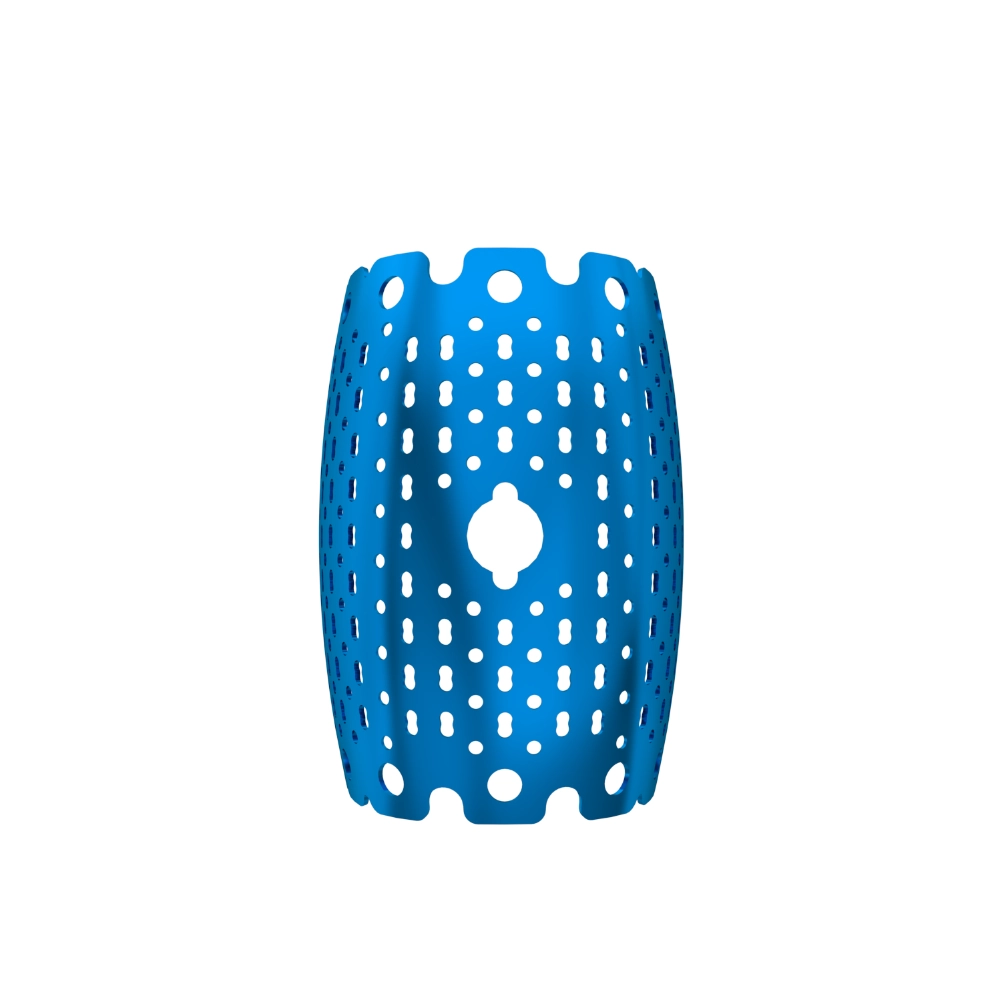By offering patients a long-term remedy for tooth loss, dental implants have completely transformed contemporary dentistry. However, the instruments used to put dental implants are just as important to their success as the implants themselves. Dental implant screwdrivers are an essential specialty instrument in the area of dentistry. They are primarily utilized to assist fixation and adjustment after tissue healing to guarantee that the implant’s location and angle are ideal, leading to improved functional restoration outcomes. The definition, kinds, uses, and safety precautions of dental implant screwdrivers will all be covered in depth in this article.

What is a dental implant screwdriver?
During dental implant surgery, a dental implant screwdriver is a specialized instrument used to tighten or loosen the screws holding the implant in place in the jawbone. In order to ensure accurate installation and reduce the possibility of harming the implant or surrounding tissue, these screwdrivers are made to suit the particular screws used in the dental implant system. For the implant to heal and stabilize as best it can, torque must be applied precisely using high-quality dental implant screwdrivers. Dental implant screwdrivers make it possible to precisely and steadily fix and modify implants during surgery.
Despite their seemingly simple appearance, dental implant screwdrivers are crucial to a successful implantation procedure because of their accuracy and design. Any dental practitioner must comprehend the significance of a screwdriver and choose the appropriate one since improper screw placement may result in issues like implant failure, infection, or extended healing time.
Key Features of Dental Implant Screwdrivers
Durability and Materials
Screwdrivers for dental implants are usually composed of sturdy materials like titanium or stainless steel, which are renowned for their ability to withstand corrosion and wear. Titanium is a popular material for dental and medical instruments because of its strength, light weight, and resistance to corrosion. These components guarantee that the screwdriver will not deteriorate or lose accuracy even after being subjected to the strain of several operations.
Precision Design
Screwdrivers for dental implants are very precise in their design. Small screws with very tight tolerances that need to be tightened firmly without over-rotating are handled by these instruments. By using the proper screwdriver, you may avoid overtightening or loosening by ensuring that each screw is put with the proper torque.
Ergonomic Handle
Because it lessens hand strain after lengthy treatments, ergonomic handle design is crucial for dentists. Surgeons can operate more effectively and precisely with a well-designed handle because it offers improved grip, control, and comfort—especially during multi-step implant operations. It is simpler to maintain hand stability while tightening the screws in the delicate and constricted regions of the mouth thanks to the ergonomic characteristics.
Sterilization and hygiene
The instruments used must be totally sanitary since dental implants are often placed into the patient’s mouth. To ensure that no germs or pathogens are introduced into the patient’s body during the treatment, high-quality dental implant screwdrivers are constructed of materials that are readily sterilized using an autoclave or another means.
Functions of dental implant screwdrivers
In oral implant repair surgery, dental implant screwdrivers are essential tools. Its primary applications are in the following areas:
- attach the implant: To guarantee the stability and long-term impact of the implant, the dental implant screwdriver may precisely attach it in the predefined position and angle once it has been put into the jawbone.
- Adjust the implant: To get the optimum implant effect, the dental implant screwdriver may also be used to make small position or angle changes after the implant has been installed.
- assist tissue repair: Dental implant screwdrivers may also be used to encourage the healing process, lower the risk of problems, and assist the repair of the surrounding hard and soft tissues.
Types of dental implant screwdrivers
Ordinary screwdrivers
In implant surgery, these are the most basic and often used screwdrivers. They are designed to work with common implant screws used in a variety of dental systems. Although they are simple to use and flexible, standard screwdrivers may not have all the sophisticated capabilities of other kinds.
Magnetic Screwdrivers
Implant screws are held in place by magnets on magnetic screwdrivers, which keeps them from dropping or falling out during insertion. This is particularly helpful in places of the mouth that are difficult to reach or are small, where accuracy is essential. Because they are convenient and lower the chance of losing the screw throughout the process, magnetic screwdrivers are widely used.
Torque Wrenches and Screwdrivers
Dental professionals can precisely apply the pressure required to tighten implant screws by using torque wrenches, which are screwdrivers with built-in torque control. These instruments are very helpful in making sure screws are tightened to the proper level, which is essential for the implant’s stability and durability.
Disposable Screwdrivers
Because disposable screwdrivers are intended to be used just once, implant operations may be performed in a sterile, hygienic manner. These screwdrivers are often utilized in environments where lowering the danger of cross-contamination is important or when patient turnover is significant.
How a Dental Implant Screwdriver is Used During Surgery
Step-by-Step Guide
- Initial Placement: The dentist uses a specialized drill to make room for the implant after first prepping the jawbone for it. Either a manual tool or a power tool is used to insert the implant itself into this area.
- Using the Screwdriver: Next, the screws holding the implant in place are inserted using the dental implant screwdriver. To make sure the screws are tightened to the right level, the dentist utilizes a conventional or torque-controlled screwdriver.
- Modifications: To guarantee a secure fit, the dentist may use the screwdriver to slightly reposition the implant or tighten the screws once it is in position.
- Final Check: Following implantation, the dentist makes sure the screws are securely fastened and assesses the stability of the implant. A stable implant will provide the crown or bridge that is put on top of it the support it needs.
Common Mistakes and How to Avoid Them
Screwdrivers for dental implants are necessary equipment, but if they are handled incorrectly, errors might happen. Typical errors include the following:
- Overtightening: Tightening the screws too much might harm the implant or the bone around it, leading to its failure. Dentists should always apply the right amount of pressure using a torque-controlled screwdriver to prevent this.
- Using the incorrect screwdriver: Since different implant systems differ, using a screwdriver that is incompatible with the implant may result in problems with fit and functionality. The screwdriver should always be compatible with the implant system being utilized, according to dentists.
Choosing the right implant screwdriver
Things to think about:
- Compatibility of implant systems: Since many dental implant systems employ various kinds of screws, it’s critical to choose a screwdriver that works with the particular implant system you’re using.
- Size and shape: Select a screwdriver that is appropriate for the patient’s mouth size and the implant being inserted.
- Quality and dependability: To guarantee longevity, accuracy, and long-term performance, always choose a premium screwdriver from a reputable brand.
Leading brands and suggestions
Among the well-known companies in the dental implant tooling sector are Zimmer Biomet, Nobel Biocare, and Straumann. These companies provide a selection of premium implant screwdrivers made to satisfy the requirements of various dental implant systems and operations. Alternatively, choose DentalMaster’s implant screwdrivers, which are simple to use and compatible with all major dental implant brands.
Dental Implant Screwdriver Care and Maintenance
Proper Cleaning and Sterilization
To avoid cross-contamination, dental implant screwdrivers should be properly cleaned and sterilised after every usage. The majority of screwdrivers may be autoclave sterilized, however for precise care recommendations, always refer to the manufacturer’s instructions.
Storage Tips
To avoid corrosion or damage, keep screwdrivers in a clean, dry area. Additionally, to maintain hygienic standards in between usage, it’s essential to preserve them in a sterile environment.
Signs of Wear
Screwdrivers deteriorate with time, and their tips may become dull or break. It’s time to replace a screwdriver if it’s not working as well as it once did. Wear may be identified by obvious scratches or damage to the tip, as well as trouble tightening the screw.
Conclusion
Dental implant screwdrivers are an indispensable tool in the dental implant procedure. They are essential for securing the implant to the jawbone and ensuring that the implant stays stable throughout the healing process. By understanding the different types of screwdrivers, how to use them correctly, and how to maintain them, dental professionals can improve the success rate of implant surgeries and provide better care to their patients.
If you’re looking to enhance your practice and improve the quality of your implant surgeries, investing in high-quality dental implant screwdrivers is a must. Choose the right tool, and you’ll ensure both precision and success in your procedures.
Frequently Asked Questions (FAQ)
Q: What are the different types of dental implant screwdrivers?
A: There are various types of dental implant screwdrivers designed to accommodate different implant systems and surgical needs. The most common types include:
- Standard Screwdrivers: Basic and versatile, suitable for most standard implant procedures.
- Magnetic Screwdrivers: Equipped with a magnet to hold the screw in place during surgery, reducing the risk of it falling, especially useful in hard-to-reach areas.
- Torque-Controlled Screwdrivers: These have a built-in torque limiter to ensure the right amount of force is applied to the implant, preventing damage from over-tightening.
- Disposable Screwdrivers: Designed for single-use only, ensuring the highest standards of sterilization and reducing the risk of cross-contamination.
Q: Can I use a dental implant screwdriver for multiple surgeries?
A: Yes, dental implant screwdrivers can be reused, provided that they are thoroughly cleaned and sterilized after each use to meet medical hygiene standards.
Q: How can I tell if my dental implant screwdriver is compatible with my implant system?
A: To ensure compatibility, check that your screwdriver meets the specifications and compatibility requirements outlined by the implant system manufacturer. This information can usually be found in the product manual or on the screwdriver manufacturer’s website. If you’re unsure, it’s a good idea to consult your dentist or a professional supplier.
Q: How often should I replace my dental implant screwdriver?
A: The frequency of replacement depends on the usage and condition of the screwdriver. If the screwdriver shows visible wear, bending, damage to the tip, or is no longer able to securely tighten the screw, it should be replaced immediately. Regular inspection and maintenance are essential to ensure the tool’s performance and patient safety.
Q: Are magnetic dental implant screwdrivers better than regular ones?
A: It depends on the surgical situation. Magnetic screwdrivers provide added convenience, especially when handling small screws or when working in confined spaces, as they can prevent screws from accidentally falling, improving surgical efficiency. However, for simpler procedures that don’t require magnetic assistance, standard screwdrivers can also perform well. The choice of screwdriver should be based on the surgical needs, the dentist’s preference, and the patient’s specific situation. In short, each type of screwdriver has its own advantages and ideal applications.

